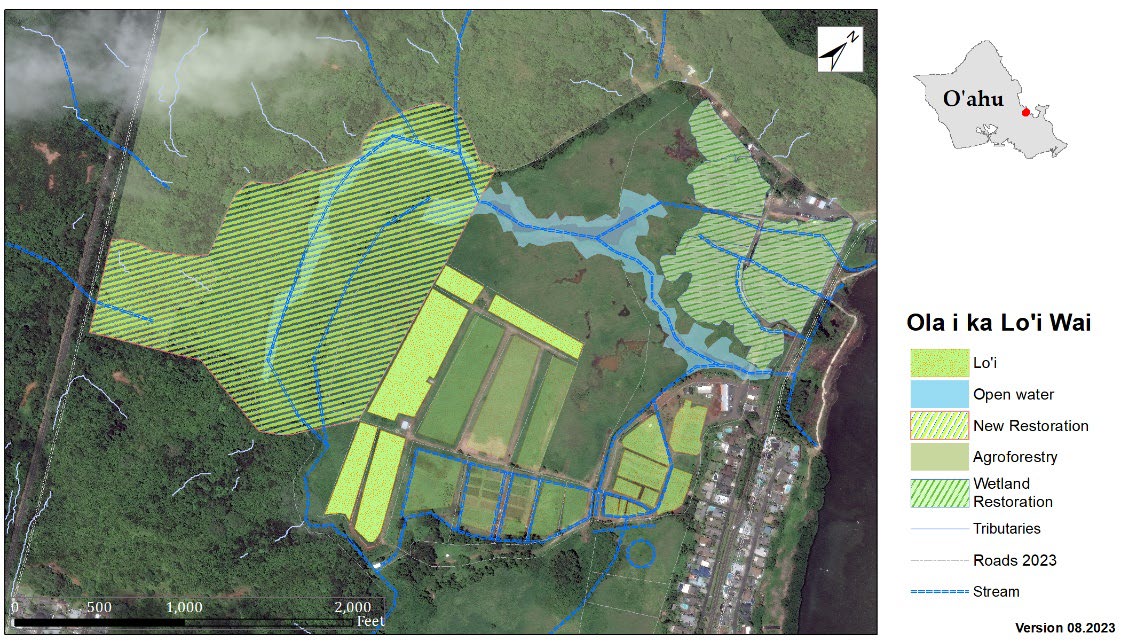Ola i ka Loʻi Wai (Life Through Indigenous Knowledge)

Recipient: Kākoʻo ʻŌiwi
Project Type: Habitat Restoration
Recommended Funding Amount: $3,400,000
Congressional District(s): HI-02
Summary: This project is based on Indigenous Native Hawaiian knowledge relating to the management of wetlands and estuaries. The project’s goal is to restore 40 acres within the Heʻeia National Estuarine Research Reserve, blending innovative technology and Indigenous knowledge related to loʻi wai (wetland agroecology) as a means to increase community resilience in regard to climate change, food security, and economic stability. The wetlands will serve as a buffer to protect Heʻeia’s fishpond, which has the potential to serve as a significant source of food for the island of Oʻahu.
Building fishpond resilience is incredibly beneficial. A new study, supported by the Heʻeia Reserve, found that fishponds actually increase fish populations both outside of the ponds and within its boundaries. Spring waters and rainwater collect nutrients, sediment, and runoff as they flow downhill. Instead of flushing directly to the ocean—which impacts water quality and coral reefs—these waters are filtered through the restored wetlands and then to the fishpond. The wetlands create a healthier fishpond environment, which boosts local food production, increases endangered waterbird habitat, and builds community resilience in regard to climate change and economic stability. Tropical wetlands, like the Heʻeia wetlands, are predicted to function as a net carbon and radiative sink within the next 300 years and aid in balancing out methane emissions.
For more information on the Office for Coastal Management grant program funding this project, please visit the Bipartisan Infrastructure Law webpage.
PRINT